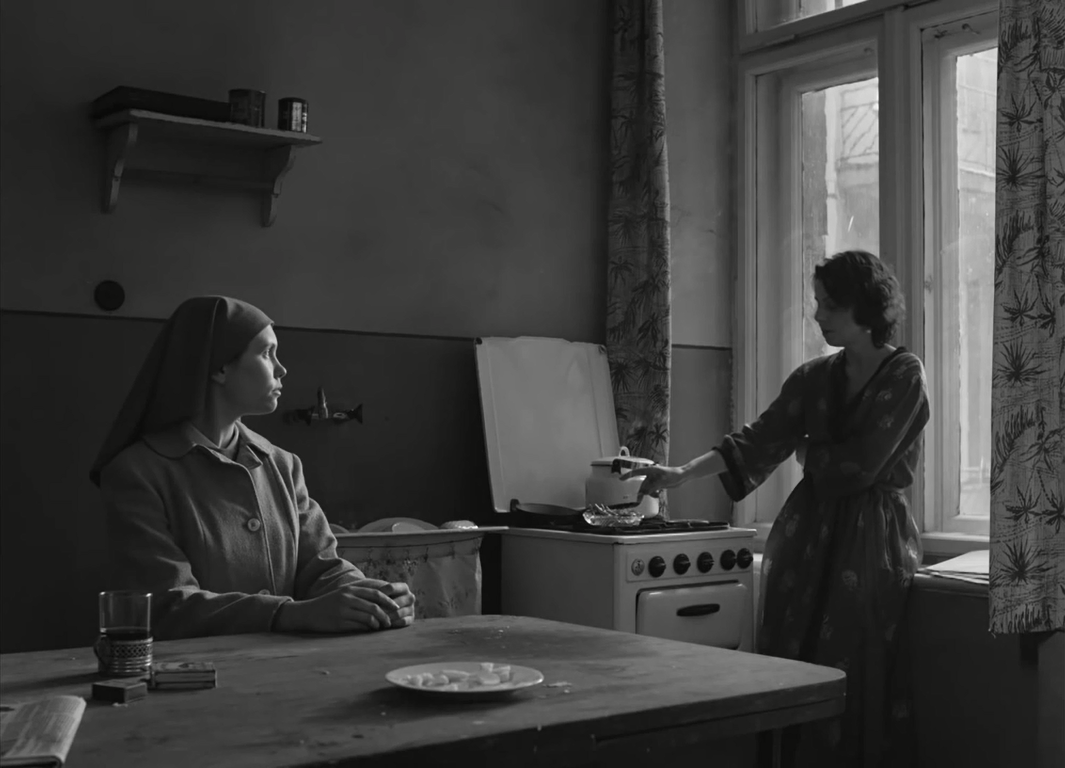Ida has been described as a masterpiece, made it on the BBC list of the 21st century greatest films, and won the first Oscar for a Polish film. Only a year after its release, it is becoming somewhat of a classic.
The film has at its centre an 18-year old woman about to become a nun in 1962 Poland. On the verge of taking her vows, young Ida discovers disturbing facts about her past. She meets her only living relative, ‘Red Wanda’, a woman who still bears the horrors of the war fresh in her mind. Ida’s known truths are challenged when she finds out her parents were Jewish and had been killed during the war. The unlikely couple, the saint and the sinner, take a journey into the past to discover what really happened to their family.
Ida explores a multitude of themes; faith, identity, lost ideals , jazz and rock and roll among them. Pawlikowski’s intention was to explore ‘different versions of Polishness’.
Director Pawel Pawlikoski himself was brought up in a traditional Catholic family, only to find out later in life that his paternal Jewish grandmother died in Auschwitz. As an adult he met a priest who discovered his Jewish identity late in live. The character Wanda is inspired by a real life encounter with a former judge in post-war Poland. These narratives all came together in Ida.
When Pawlikowski told his friends he was making a black and white film, in Polish and set in Poland, his friends warned him of committing professional suicide. The risk certainly seems to have paid out.
